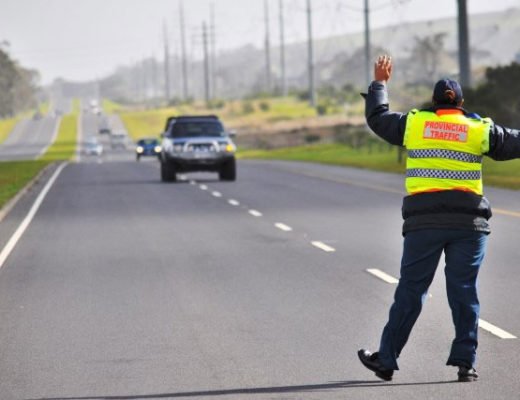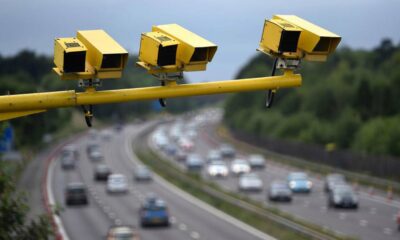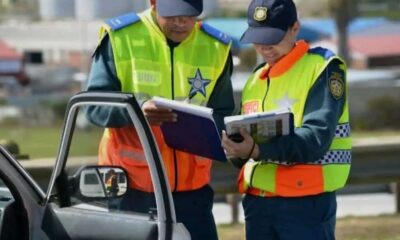News
No, South Africa’s AARTO Demerit System Isn’t Live Yet : Here’s What You Need to Know

Confusion reigns as false reports go viral, but RTIA says rollout is still in early stages.
If you’ve recently panicked after reading headlines about South Africa’s demerit system being launched, take a breath you’re not alone, and more importantly, the system is not live yet.
Over the past few days, a flurry of WhatsApp forwards, social media posts, and even major news outlets have incorrectly reported that the Administrative Adjudication of Road Traffic Offences (AARTO) — the country’s long-discussed points-based driving penalty system — has suddenly launched nationwide as of 5 June 2025.
But the Road Traffic Infringement Agency (RTIA) is calling it what it is: fake news.
What is AARTO and why are people confused?
The AARTO Act is not new — in fact, it’s been in legislative limbo for over a decade. The system is designed to decriminalise minor traffic infractions (like speeding or failing to stop at a red light) and instead treat them as administrative offences. It also introduces a demerit points system that could lead to driver’s licence suspension or mandatory retraining for repeat offenders.
Under the AARTO system, each driver starts with a clean slate — zero demerit points. But if you accumulate 13 points or more, expect a suspended licence and a trip back to driving school. The model mirrors systems in countries like Australia and New Zealand, where similar reforms have improved road safety.
However, unlike the current fine-based system where motorists are innocent until proven guilty, AARTO assumes guilt unless the driver contests the charge. That legal twist alone has been a point of heated debate among South Africans.
So where does it actually apply?
Despite the noise, the AARTO system is currently operational only in Johannesburg and Tshwane. That’s it. The rollout is supposed to take place in four distinct phases, and South Africa is still stuck in Phase 1.
According to RTIA:
-
Phase 1 focused on building infrastructure — service outlets, back-end systems, and payment facilities.
-
Phase 2 will involve introducing AARTO to 69 municipalities.
-
Phase 3 will add 144 more municipalities across the country.
-
Phase 4 — the final and most impactful phase — will roll out the demerit point system nationwide and implement rehabilitation programs for offending drivers.
Right now, only Phase 1 has been completed. No national rollout date has been announced. No demerit points are being added to your record outside the pilot cities. And if you haven’t heard it directly from the RTIA or the Department of Transport, it isn’t real.
Why the confusion?
A widely shared news article — picked up by some reputable outlets — falsely claimed the demerit system was launching nationwide on 5 June. The RTIA quickly hit back, issuing a statement as early as 3 June to label the claims as “false” and “misleading.”
“It has come to our attention that fake news about the AARTO rollout has been spread,” the agency said. “RTIA assures the public that an official statement will be released when the next phase is implemented.”
The fact that many South Africans only hear about traffic laws through informal WhatsApp groups or forwarded Facebook posts didn’t help matters.
What’s next for AARTO?
While RTIA confirms that it’s still actively working on AARTO — with the goal of eventually enhancing road safety across all 213 issuing authorities in the country — it emphasized that there’s no official rollout timeline yet.
There are also legal and administrative hurdles still in play. While the Gauteng High Court initially declared AARTO unconstitutional in 2022, the Constitutional Court later overturned that decision, affirming the law’s validity and paving the way for national implementation — but it’s been slow going ever since.
In the meantime, RTIA is revising the AARTO regulations and preparing the back-end logistics to support a national system that won’t crash on day one.
Let’s be real: South Africa’s road safety stats need a serious intervention. Fatal accidents, reckless driving, and corruption in traffic enforcement are real problems — and they’re not going away on their own.
A properly managed, transparent demerit system like AARTO could help fix some of these issues. But it needs public trust, clear communication, and full transparency.
Unfortunately, until the government communicates official rollout plans directly, all we’ve got are rumors and headlines — some of them dangerously inaccurate.
So next time you hear someone say, “You’ll lose your licence after one speeding ticket,” send them this article — and remind them that fake news spreads faster than traffic on the M1 in peak hour.
{Source: BusinessTech}
Follow Joburg ETC on Facebook, Twitter , TikTok and Instagram
For more News in Johannesburg, visit joburgetc.com


























